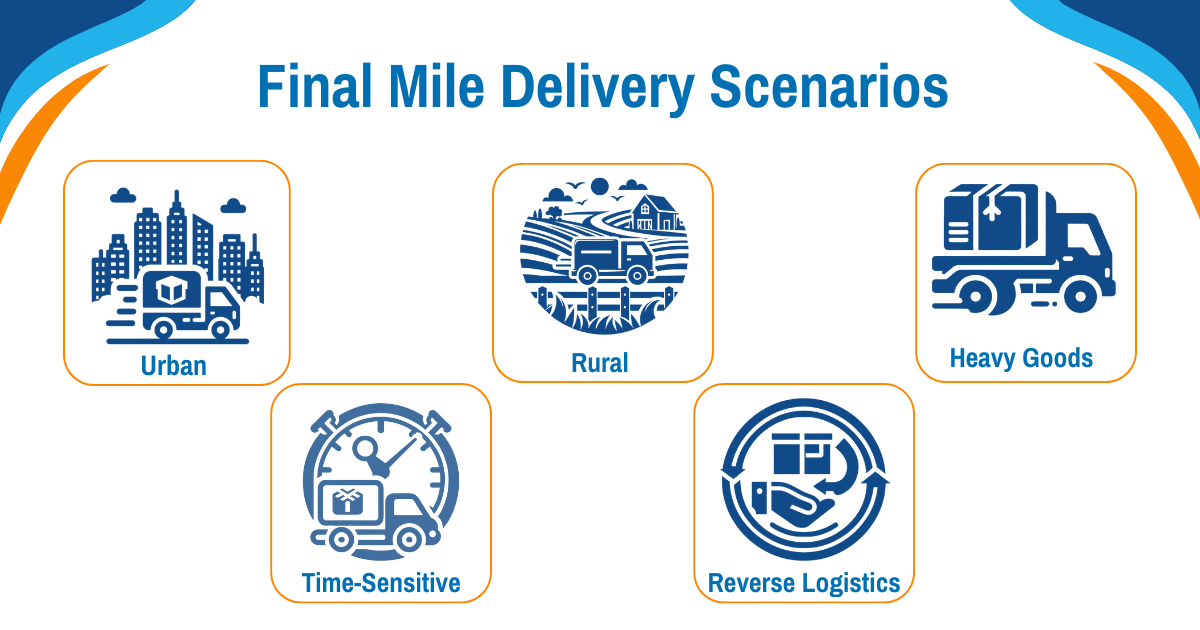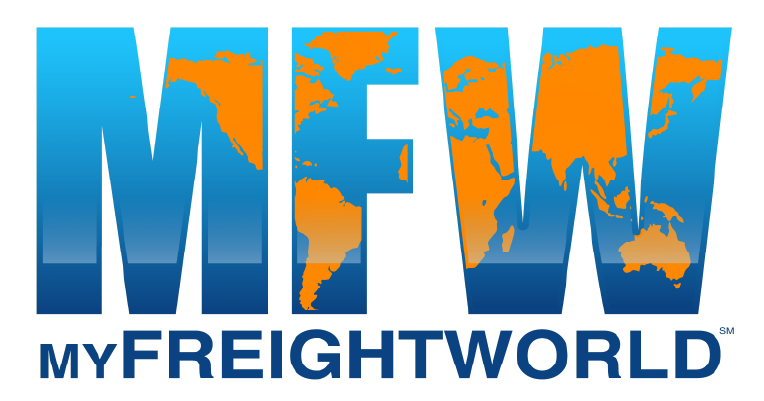
Introduction
Final mile delivery, also known as last mile delivery, refers to the final stage of the delivery process where goods are transported from a distribution center to the end customer. This phase is vital for ensuring timely deliveries and enhancing customer satisfaction. Efficient final mile transportation is crucial in e-commerce, retail, healthcare, and food delivery sectors, where delivery speed and accuracy are paramount.
Industry Applications

Urban Delivery
Handling deliveries within densely populated urban areas is essential for e-commerce and retail sectors that demand frequent, timely deliveries to urban customers. Challenges include navigating traffic congestion, parking restrictions, and optimizing delivery windows.
Rural Delivery
Managing deliveries to remote or less accessible locations is crucial for agriculture and specialty goods sectors. This involves addressing longer travel distances and fewer delivery points per route.
Heavy Goods Delivery
Transporting large, bulky items like furniture and appliances is critical for home goods, electronics, and furniture sectors. This requires specialized handling and installation services.
Time-Sensitive Delivery
Ensuring deliveries within specific time windows is vital for healthcare and pharmaceuticals, where timely delivery of medical supplies is critical. Precise scheduling and compliance with regulatory standards are necessary.
Reverse Logistics
Efficiently managing returns and exchanges is essential for e-commerce and retail sectors with high return volumes. This involves minimizing costs and maintaining customer satisfaction.
The Impact of Efficient Final Mile Delivery
Streamlining final mile delivery can lead to significant reductions in operational expenses and increased customer satisfaction. For example, a leading retailer improved their final mile delivery process to lower inventory carrying costs and boost delivery speed, ultimately enhancing their supply chain efficiency.
Common Challenges
Tackling Urban Congestion
Urban congestion can lead to delays and increased costs. Mitigation strategies include scheduling deliveries during off-peak hours and using real-time traffic updates to optimize routes.
Managing Cost Volatility
Final mile delivery costs fluctuate due to fuel prices and labor rates. Managing these costs involves negotiating flexible pricing models with providers and incorporating electric vehicles to reduce fuel dependency.
Handling Returns and Reverse Logistics
Efficient management of product returns is crucial for customer satisfaction. Implementing robust reverse logistics processes and using technology for real-time tracking can streamline this process and boost brand reputation.
Streamlining Operations with Technology
Leveraging Real-time Data
Advanced GPS tracking and transportation management systems enable businesses to monitor deliveries in real time, adjust routes dynamically, and manage schedules effectively, reducing downtime and improving reliability.
Optimizing Routes and Schedules
Smart routing software uses traffic patterns and logistical data to reduce travel times and fuel costs. Regular updates based on real-time data ensure continuous improvement in delivery operations.
Selecting the Right Provider
When choosing a last-mile delivery provider, it’s essential to consider factors like reliability, a thorough understanding of industry-specific challenges, and clear communication. Providers need to adeptly manage regulatory and environmental requirements.
Technology
Leveraging advanced technology can significantly streamline final mile delivery operations, enhancing efficiency and customer satisfaction. Key technological tools include advanced GPS tracking and route optimization software, which enable real-time monitoring of delivery vehicles and dynamic adjustment of routes based on current traffic conditions and delivery priorities. This reduces downtime and ensures timely deliveries. Additionally, integrating Internet of Things (IoT) devices can provide real-time data on package location and condition, particularly beneficial for temperature-sensitive goods in the healthcare and food sectors. Blockchain technology can further enhance transparency and security by providing an immutable record of transactions and delivery statuses, reducing the risk of fraud and disputes. By adopting these technologies, companies can optimize their delivery processes, reduce operational costs, and improve overall service quality.
Cost Management in Final Mile Delivery
Remember this: Managing costs effectively is essential in final mile delivery to ensure that operations remain financially sustainable while meeting customer expectations. Companies can employ various strategies to control and reduce costs. First, negotiating flexible pricing models with delivery providers can help mitigate fluctuations in fuel prices and labor rates, allowing for more predictable budgeting. Using technology such as route optimization software can significantly reduce fuel consumption and travel times, directly lowering transportation costs. Additionally, adopting electric vehicles for urban deliveries not only reduces fuel costs but also complies with increasing environmental regulations, potentially unlocking green incentives. Consolidating deliveries by combining orders going to similar locations can further decrease per-delivery costs. Implementing advanced analytics helps identify inefficiencies and areas for cost reduction, such as minimizing empty miles and optimizing vehicle load capacities. Through these strategies, businesses can achieve more predictable and lower operational expenses in their final mile delivery operations.
Enhancing Operational Efficiency in Final Mile Delivery
Efficient final mile delivery is crucial for ensuring timely and satisfactory customer service. The implementation of warehouse management systems (WMS) can streamline the processes of picking, packing, and dispatch, thereby reducing the time and errors associated with manual handling. Real-time tracking technologies allow companies to monitor delivery vehicles and adjust routes dynamically based on traffic conditions and delivery priorities, thus improving delivery speed and reliability. Furthermore, the use of smart lockers and centralized pick-up points can decrease the number of individual delivery stops, leading to increased delivery density and efficiency. Investing in automated sorting and packing systems can also lower labor costs and expedite order fulfillment processes. Additionally, the use of data analytics provides valuable insights into delivery patterns and performance metrics, facilitating continuous improvement and strategic decision-making. By embracing these technologies and practices, businesses can enhance the operational efficiency of their final mile delivery, ensuring they effectively meet customer demands in a cost-efficient manner.
Conclusion
Remember this: Efficient final mile delivery is crucial for maintaining a smooth supply chain and ensuring high customer satisfaction. By understanding the unique challenges of final mile logistics and implementing advanced technologies, businesses can significantly improve their delivery operations. Using tools like real-time tracking, route optimization, and IoT devices, along with adopting sustainable practices and strategic cost management, can lead to substantial improvements in operational efficiency and cost reduction. Get in touch with us today to find out how we can help you achieve operational excellence in your final mile delivery.
